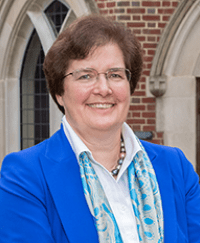
AALS President and Dean, University of Richmond School of Law
One of the most vexing problems facing our nation today is the deep political polarization that has infected civic life. It is not just that people strongly disagree about important social and policy issues—that has always been true. But finding common ground has become harder because there are simply fewer political moderates—people whose views cross party lines on at least some issues—and because our political discourse has become increasingly disparaging and personal.
As our society struggles with this problem of deep polarization, lawyers and law schools have an important role to play. Lawyers are, after all, in the dispute resolution business. Resolving conflict is central to what we do. Today, perhaps more than ever before, the skills that we as lawyers have, and we as law professors teach, are of critical importance.
Lawyers understand how to structure decision-making and dispute resolution processes. We understand the importance of the opportunity to be heard and other aspects of fundamental fairness. We understand the importance of considering both sides and crediting the merits of opposing views. We understand the importance of facts—the ones we can prove, not merely the ones we wish to be true. And we understand the importance of inviting people with opposing views to the table to get them talking to each other in the first place.
Lawyers are not only comfortable navigating a world of conflict and disagreement, but they also approach disagreements with a methodology that is built on recognizing the strength of the opposing views. Legal pedagogy, like good lawyering, emphasizes the importance of developing a deep, even empathetic understanding of the arguments on the other side. Our case books include dissents which force students to confront opposing arguments. We constantly push our students away from the psychological comfort of certainty to that uneasy place where opposing views loom large.
The point is not that arguments should be drained of emotion. Where the stakes are high, emotions will run high. But lawyers understand that disputes, even on matters upon which convictions are deeply held, need not be personal, and that it is possible to separate the substance of an argument from the person making that argument. Lawyers likewise understand that it is possible to disagree without being disagreeable—indeed, we are admonished to do just that in our principles of professionalism.
Lawyers are not social workers, but they are, as Lon Fuller put it, architects of social structure. And in that role as architects, they can be—we can be—enormously helpful in reconnecting a fractured world. That is to say, in building bridges.
So that is my theme for the year: building bridges. I hope that we can put on display our traditions of professionalism, civility, and reasoned disagreement, and inspire the next generation to “think like a lawyer” about society’s problems: to listen, consider, reason, collaborate, resolve, and even heal.
Wendy Collins Perdue
AALS President and Dean, University of Richmond School of Law